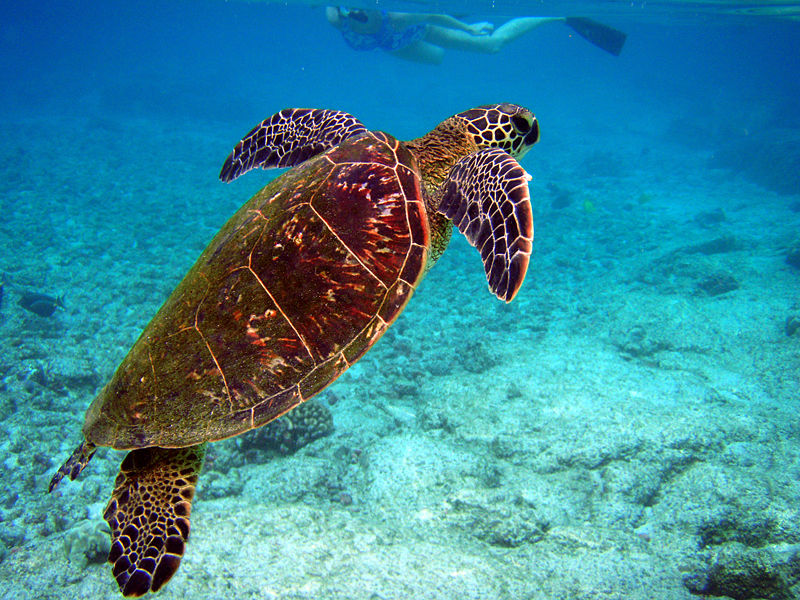Numbers of endangered sea turtles are on the up in British and French waters, thanks to conservation efforts on the other side of the Atlantic.
That's according to a team of researchers from the University of Exeter here in the UK who have been studying a hundred years worth of data on sightings of loggerhead and kemp ridley turtles in European waters.
Most of the marine turtles that visit European shores are born on the other side of the world in North America, Mexico and other Caribbean countries. After hatching the baby turtles take up to four years to swim across the Atlantic, and scientists are still not quite sure why they bother coming all this way.
Marine turtles are in a pretty bad way globally for all sorts of reasons. For a long time they have been accidentally caught in fishing nets, and also turtle eggs used to be harvested in huge numbers from beaches in the Caribbean for people to eat.
But as this latest study seems to suggest, the conservation programmes that began towards the end of the 20th century to try and protect turtles may already be paying off. For example, egg collecting doesn't happen any more and shrimp trawlers in the gulf of Mexico have begun to use devices which either stop turtles from getting into their nets in the first place, or lets them escape unharmed. And another recent study looked at glowing light sticks that you might usually see at guy fawks night or Halloween, that are used in open ocean long line fisheries to attract tuna and swordfish. It seems these lights also attract turtles which might be why so many of them are getting entangled and hooked on the long lines. The good news there is that by adjusting the colour or intensity of the lights used it could make the lights less attractive to turtles while still being effective at attracting the big fish.
All of these turtles conservation measures could well explain why we're seeing more and more turtles in the UK which 30 years ago were never seen.
So - for once we have a good news conservation story.










Comments
Add a comment